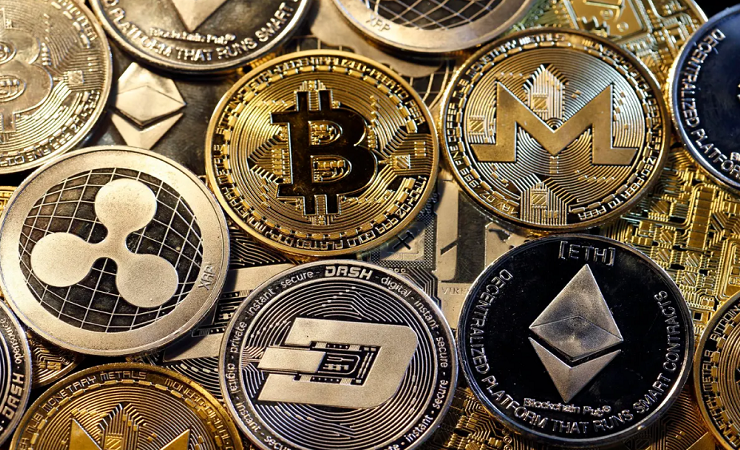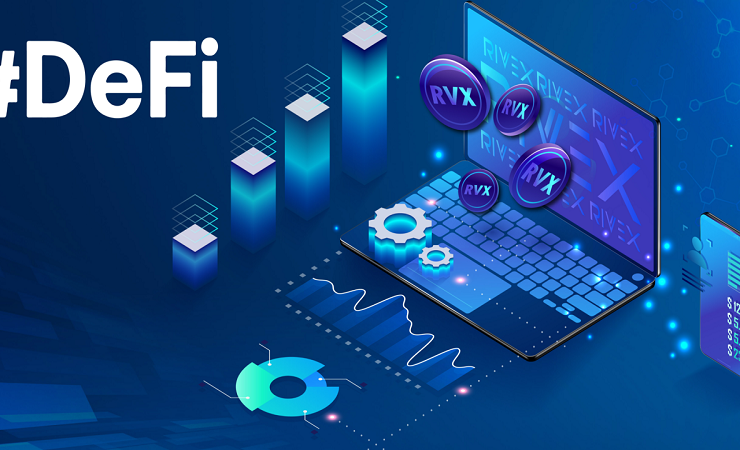Greetings from the future! From its early days as a specialised curiosity to its current status as the financial industry’s darling, cryptocurrency has gone a long way. It’s incredible to think that Bitcoin, the original cryptocurrency, was only developed a little over ten years ago. The way we think about money, transactions, and even ownership has been revolutionised by cryptocurrencies, which are now worth trillions of dollars. The future of cryptocurrencies in the USA will be examined in more detail in this essay, with an emphasis on DeFi and Blockchain in particular.
Let’s begin with a quick summary. A digital asset called cryptocurrency employs cryptography to safeguard transactions and regulate the generation of new units. It functions without the aid of a government or central bank, making it a decentralised substitute for conventional money. Cryptocurrency regulation in the USA has a troubled past because of how quickly technology is developing. Despite these obstacles, the USA has become a global leader in the cryptocurrency industry, home to many of the best exchanges and businesses.
What, though, lies ahead? Blockchain and DeFi both play a role in this. DeFi, or decentralised finance, is a quickly expanding segment of the bitcoin market with the goal of building a more accessible, open, and transparent financial system. The majority of cryptocurrencies’ underlying technology, blockchain, has the potential to revolutionise fields outside of finance. It is impossible to overestimate the significance of DeFi and Blockchain; the USA and the rest of the globe will be affected by them for many years to come. So fasten your seatbelts and get ready for a thrilling voyage into cryptocurrency’s future!
Describe DeFi.
DeFi, or decentralised finance, is a quickly expanding segment of the bitcoin market with the goal of building a more accessible, open, and transparent financial system. Because DeFi is based on the blockchain, peer-to-peer transactions are possible without the use of middlemen like banks. This implies that the DeFi ecosystem is accessible to anyone with an internet connection.
There are many benefits to DeFi. First, since everyone with an internet connection can use the system, it promotes broader financial inclusion. Second, because all transactions are recorded on the blockchain, it is more secure and transparent than traditional finance. Thirdly, it makes it feasible to develop new financial services and products that were either impractical or impossible to do before, including decentralised exchanges and lending systems.
DeFi has a wide range of use cases, from borrowing and lending to trading and investing. For instance, users can utilise a decentralised exchange to trade one cryptocurrency for another or lend their bitcoin to others in exchange for interest. DeFi is just getting started, yet it already has the ability to significantly upset traditional finance.
Technology behind blockchain
The foundation of the entire cryptocurrency ecosystem is blockchain technology. A blockchain is essentially a decentralised digital ledger that keeps track of transactions in a safe, open, and unchangeable manner. This is achieved by ensuring that every transaction is validated and recorded by a network of computers rather than a single central authority utilising distributed computing and cryptography.
The use of blockchain technology has various benefits. As every transaction is recorded on a distributed ledger that cannot be changed or erased, it is first and foremost more secure than traditional systems. As everyone in the network can see the same data, it is also more transparent. Thirdly, it makes it possible to develop decentralised platforms and apps that are not governed by a single entity.
Blockchain technology has a wide range of applications, from cryptocurrencies to voting systems to supply chain management. Blockchain can be used, for instance, to build a safe and transparent voting system or to track the provenance of commodities in a supply chain. Blockchain technology’s potential to upend established sectors and open up new business opportunities will only increase as it develops.
USA cryptocurrency regulations
The laws governing cryptocurrencies in the USA are complicated and changing quickly. Since authorities are unable to keep up with the rate of innovation, the regulatory framework for cryptocurrencies is still in its infancy. At the moment, cryptocurrencies are subject to both federal and state regulation, with various agencies in charge of various parts of regulation.
Regulations significantly affect the uptake of cryptocurrencies in the USA. For investors and users, regulations can improve stability and security, but they can also hinder innovation and restrict access to the bitcoin ecosystem. Recent legislative changes, such the SEC’s crackdown on initial coin offerings and the implementation of the BitLicense in New York, have had conflicting effects on the future of cryptocurrencies in the United States. It will be crucial for regulators to strike a balance between safeguarding consumers and promoting innovation as the regulatory environment changes.
Blockchain and DeFi in the Financial Sector
With a complicated network of middlemen and laws, big banks and financial institutions presently control the financial sector in the USA. The system can be unavailable to many people and is frequently cumbersome, opaque, and expensive. However, the emergence of blockchain and DeFi technologies has the potential to significantly destabilise this arrangement.
The financial sector may benefit from increased transparency, security, and accessibility thanks to DeFi and blockchain technology. They can develop new financial services and products, enable peer-to-peer transactions without the need for middlemen, and reduce consumer costs. Adoption still faces obstacles, though, including the need for better user interfaces and regulatory uncertainties. These issues can be resolved by working together with developers, industry leaders, and regulators to design better user-friendly DeFi application interfaces.
Blockchain and DeFi in Other Industries
Other sectors besides finance could be affected by DeFi and blockchain technology, such as supply chain management, real estate, and healthcare. They can increase efficiency, security, and transparency in various sectors and open up new doors for innovation and cooperation.
Healthcare providers utilising blockchain to safely store and share medical data and real estate companies using blockchain to speed up property transactions are two examples of industries that have already used DeFi and blockchain technology. Adoption may result in enhanced trust and transparency, cost savings, and increased effectiveness. Adoption still faces obstacles, though, such the need for more user-friendly interfaces and regulatory uncertainties. The potential for DeFi and blockchain to change other industries will increase when these issues are resolved.
Conclusion
DeFi and blockchain technology are ready to revolutionise the financial sector and beyond, and this bodes well for the future of cryptocurrencies in the USA. We have seen how DeFi and blockchain can increase efficiency, security, and transparency while also opening up fresh possibilities for innovation and teamwork.
Adoption, however, nevertheless confronts obstacles like regulatory ambiguity and the demand for improved user interfaces. Together, regulators, business titans, and developers must tackle these issues in order to give consumers and investors a more secure and stable environment.
Looking ahead, it is evident that blockchain technology and cryptocurrencies will continue to have a big impact on how the financial sector and other industries develop. It’s critical for people and businesses to stay up to date on industry changes and to carefully weigh the advantages and disadvantages of new technologies in order to fully realise their potential.
In general, the United States’ future for cryptocurrencies and blockchain technology is promising and exciting. We can create a more open, safe, and inclusive financial ecosystem for everyone by embracing innovation and collaboration.
Read More You May Like:














Post Comment